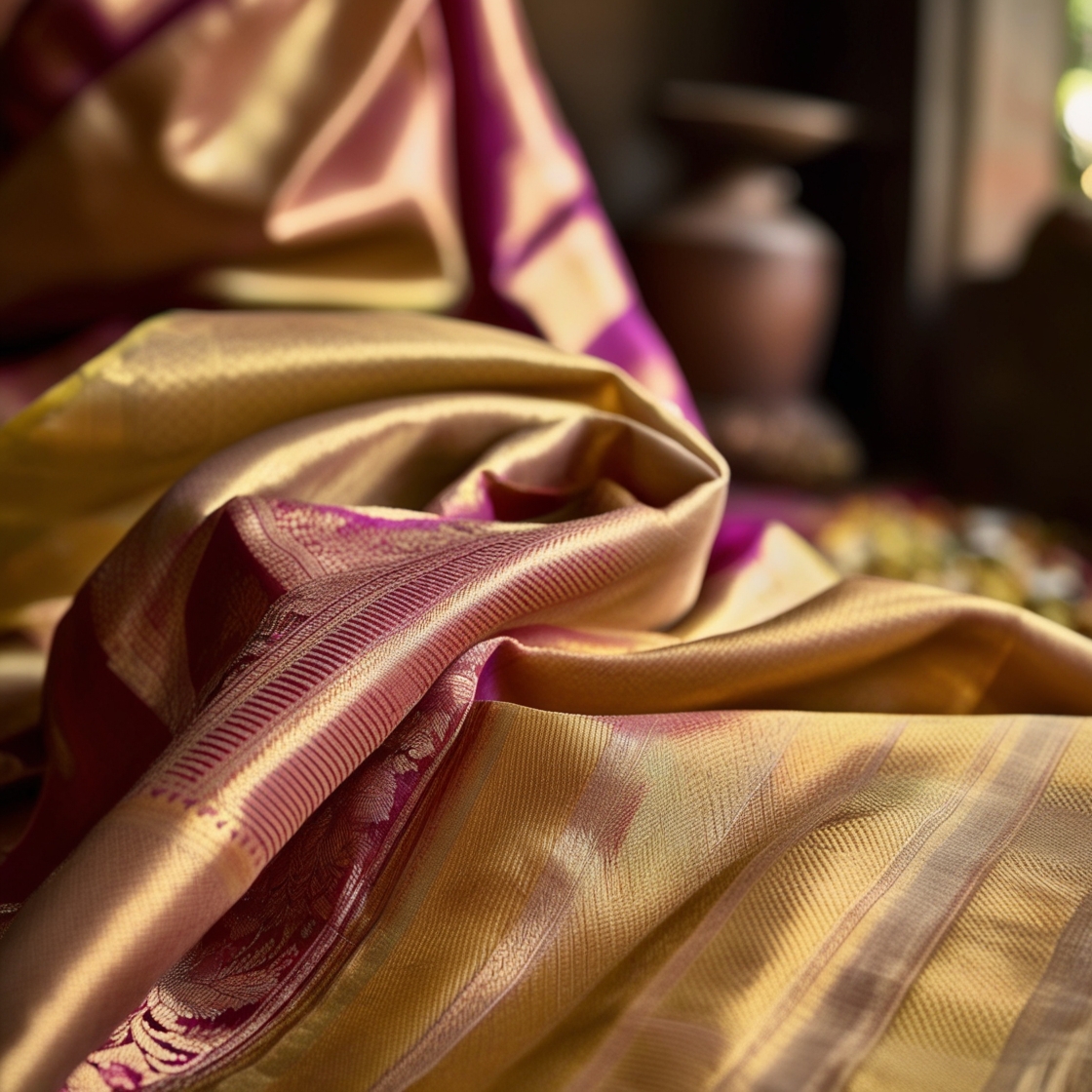The Banarasi saree, often synonymous with timeless elegance, royal craftsmanship, and cultural heritage, has been an iconic symbol of Indian fashion for centuries. Traditionally worn during weddings, festivals, and special occasions, Banarasi sarees have long been seen as a treasure for the older generation. But today, Gen Z is flipping the script, breathing new life into this timeless fabric, and redefining how we wear Banarasi sarees in the modern era.
1. The Modern-Day Influence of Gen Z
Gen Z, the generation born between the late 1990s and early 2010s, is known for its creative expression and experimental approach to fashion. Unlike previous generations, who primarily embraced Banarasi sarees in their traditional form, today’s young trendsetters are taking bold steps to modernize this classic piece of art. They blend tradition with contemporary elements to suit their fast-paced, eclectic lifestyles.

2. Fusion Fashion: Banarasi Meets Street Style
Gen Z’s fashion philosophy leans towards mixing and matching cultures, styles, and influences. When it comes to Banarasi sarees, they aren’t afraid to blend these regal weaves with modern-day streetwear. Think of pairing a rich, embroidered Banarasi saree with crop tops, denim jackets, and even sneakers!
This fusion of high-fashion meets street style makes the saree versatile and wearable for casual outings, music festivals, and even daily wear. Gone are the days when sarees were only considered festive attire; Gen Z is taking the Banarasi saree to the streets.

3. Sustainability Matters
Another reason behind the growing appeal of Banarasi sarees among the Gen Z crowd is the emphasis on sustainable fashion. Gen Z is deeply aware of the environmental impacts of fast fashion and is turning toward heritage pieces like Banarasi sarees, which are handcrafted and made to last. They are investing in quality over quantity and view the saree as a long-term, sustainable investment that can be passed down through generations.
By reusing vintage Banarasi sarees from their mothers or grandmothers, or even shopping from ethical brands, young buyers are embracing sustainability in fashion without compromising on style.

4. Breaking Gender Norms
Banarasi sarees have always been associated with feminine beauty, but now, Gen Z is challenging gender norms by experimenting with androgynous fashion. Young men are increasingly seen incorporating Banarasi silk fabric into sherwanis, kurtas, and even sarees. This shift toward gender-fluid fashion reflects Gen Z’s belief in the freedom of self-expression without conforming to traditional gender roles.

5. Social Media’s Role in the Revolution
Social media has played a pivotal role in helping Gen Z discover and redefine the Banarasi saree. Platforms like Instagram, TikTok, and Pinterest are filled with influencers and designers showcasing innovative draping styles, fusion looks, and easy-to-follow tutorials. The viral appeal of saree styling hacks and DIY content has made Banarasi sarees not just aspirational, but accessible to younger audiences.

In today’s fashion landscape, Gen Z is proving that tradition doesn’t have to be static. By infusing modern elements, gender fluidity, and sustainability into their wardrobe, they are redefining how we view the classic Banarasi saree. This revolution is not only making the saree more relatable and wearable for younger generations but also ensuring that this centuries-old tradition continues to evolve with the times.
With their creative flair, Gen Z is ensuring that the Banarasi saree remains timeless—not because it stays the same, but because it’s being redefined for each new generation.


